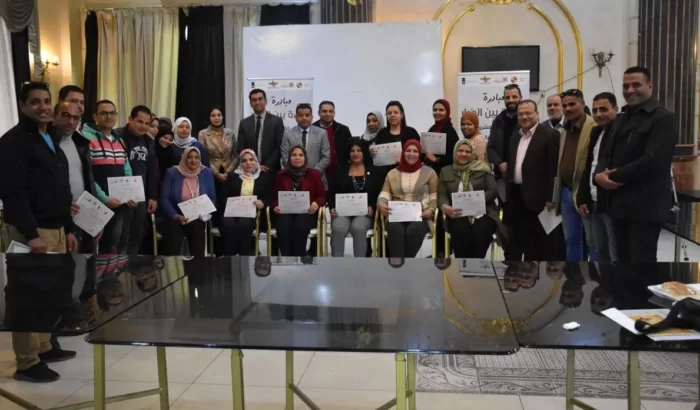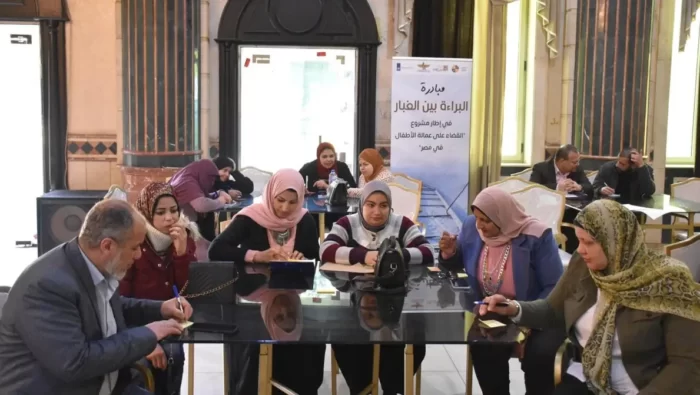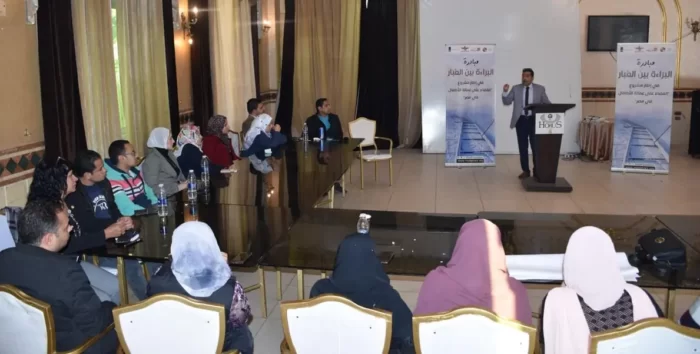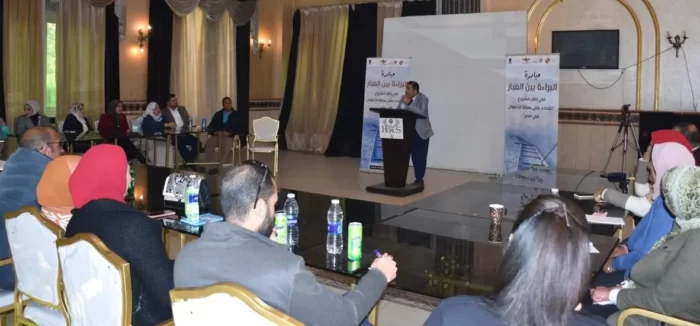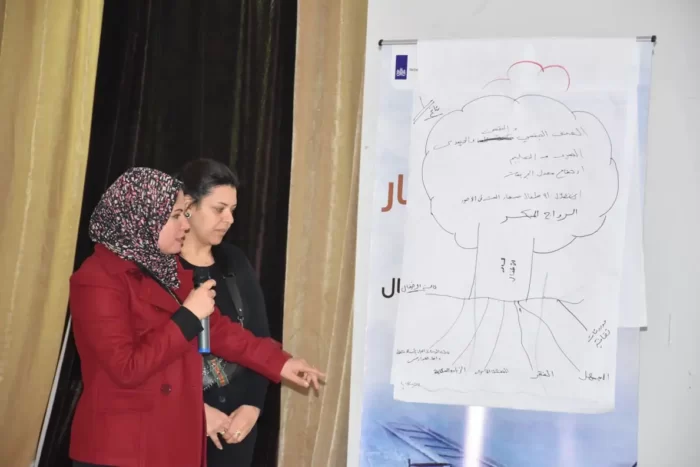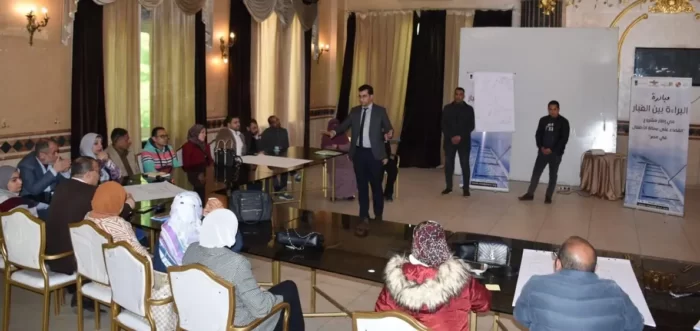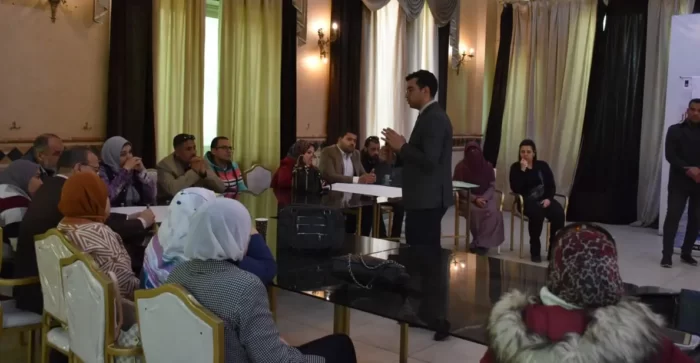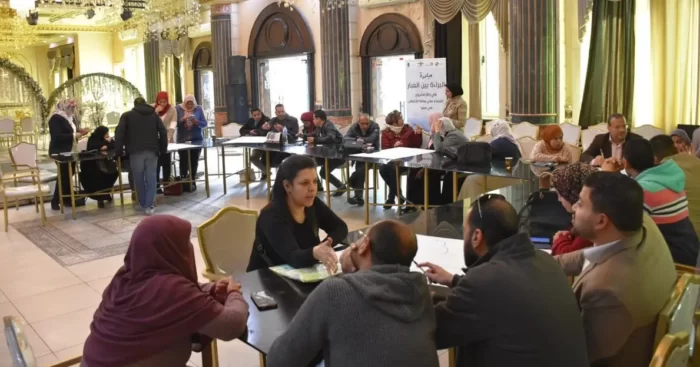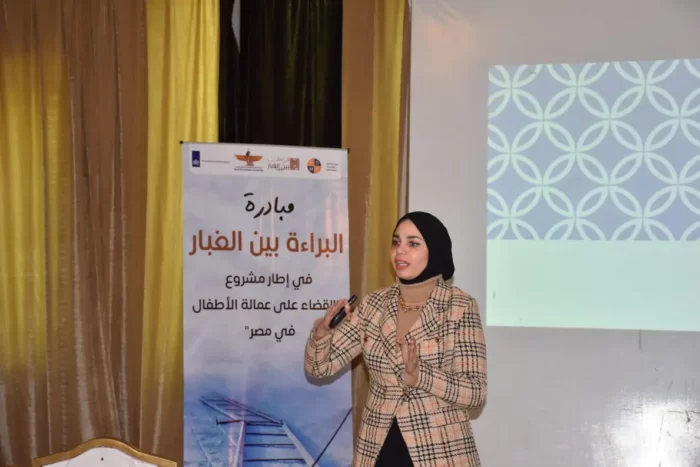Within the framework of the "Elimination of Child Labor in Egypt" project, and in a continuation of the "Innocence is Lost among the Dust" initiative, and in line with the sustainable development goals and the national plan to combat the worst forms of child labor, Maat for Peace, Development and Human Rights held the first training day in Minya Governorate with the aim of raising the capacities of a number of executive officials in Minya governorate, to "distinguish between acceptable and unacceptable forms of child labor", in the presence of a number of trainers specialized in combating child labor.
During the training day, Abdellatef Gouda, coordinator of the "Innocence is Lost among the Dust" initiative, discussed the definition of child labor and its various forms in Egypt, especially in the quarries of Minya Governorate. Besides, Gouda explained the social consequences of child labor on children’s physical, mental, and psychological health as well as their educational attainment and growth.
Dr. Dalia Abdel-Wahab, an expert in international law and international conventions, focused on the most important efforts made in this area, which are represented in the international conventions signed in order to regulate child labor in fields that are commensurate with their nature and ensure that their rights are not violated.
Abdel-Wahab also highlighted the Egyptian laws regulating child labor, while exposing the values that prevent application, and explained the efforts of Egyptian legislation to ensure the availability of full rights for working children, and to ensure the preservation of their physical, psychological, and mental health.
Ahmed Shabib, an Egyptian lawyer, pointed out the distinction between acceptable and unacceptable forms of child labor, explaining that the rate of child labor in rural areas is higher than urban areas and that 82.2% of children are exposed to abusive and hazards conditions in their jobs. Shabib also outlined the challenges that prevent the effective confrontation of the phenomenon of child labor, which include the economic and social dimensions as well as the targeting of children by employers because of their low wages.
The training day was concluded with a set of recommendations, such as: the need to expand the umbrella of social protection, to ensure that low-income families do not resort to child labor and ensure that children do not drop out of school; the need to pay further attention to preparing qualified personnel and specialized human resources in the field of child protection in general and child labor in particular, as well as providing vocational educational centers as alternatives for working children who have dropped out of the educational process; the need to ensure that the international conventions regulating child labor obligate states to implement awareness-raising programs for families about acceptable and prohibited jobs for children, as well as the minimum age for child labor and the risks that they may face.
It is worth noting that Maat is launching the "Innocence is Lost among the Dust" initiative within the framework of the "Elimination of Child Labor in Egypt" project, which also comes under the framework of the joint agreement concluded with ADMC Group, and is funded by the Dutch Agency for Projects RVO. This cooperation aims to implement various activities including campaigns and initiatives aimed at achieving the 7th and 8th target of the SDGs, which is the elimination of all forms of child labor by 2025. The initiative also comes in line with the goals of sustainable development and the national plan to combat the worst forms of child labor.


